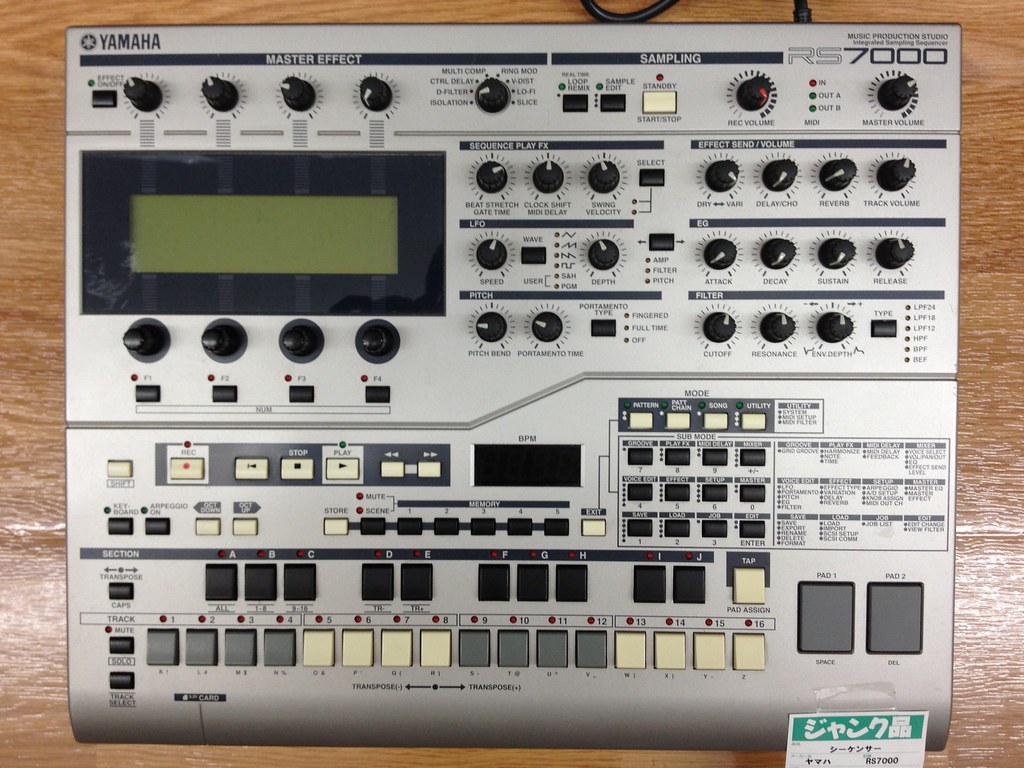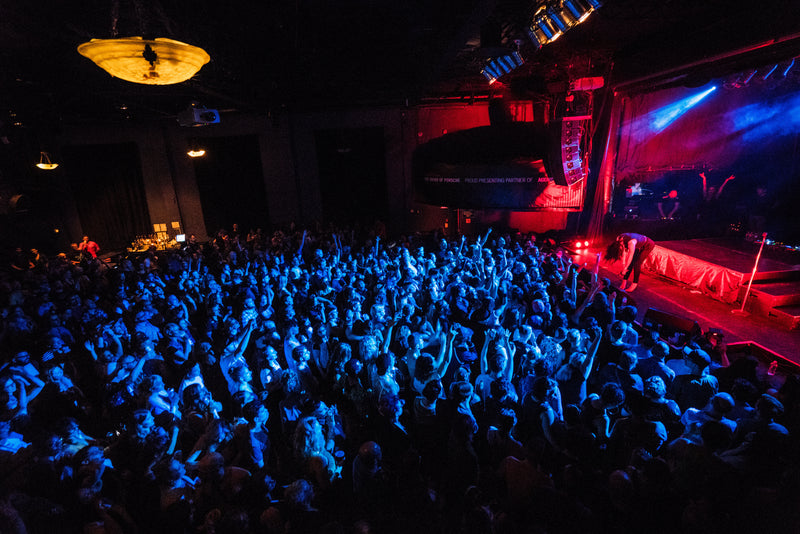Music production is a complex art, requiring a combination of technical skills and artistic flair. As any music producer knows, having the right equipment is crucial to creating high-quality tracks. One of the most important components of a music production setup is RAM – but how much do you really need? Is 8GB enough to handle all the demands of modern music production? In this blog post, we’ll explore this question in detail and provide you with all the information you need to make an informed decision about your RAM requirements. So if you’re a music producer looking to optimize your setup, read on!
Table of Contents
Understanding the Role of RAM in Music Production
RAM in Music Production plays a crucial role in ensuring that your computer can handle the intense processing needs of modern digital audio workstations (DAWs). When working with large numbers of tracks, plugins, and effects – RAM acts as temporary storage for data that is being actively processed.
Without sufficient RAM, DAWs will struggle to keep up with user input and may eventually crash or freeze. However, it’s important to note that RAM alone isn’t the only factor determining performance; other components like CPU speed and hard drive read/write speeds also play a key role. Nevertheless, having sufficient RAM is essential for smooth music production workflows, especially when working on larger projects or using more resource-heavy plugins such as virtual instruments or mastering suites.

The Minimum RAM Requirements for Music Production: Debunking the Myths
Minimum RAM requirements for music production have been a topic of debate for years. Some say that 8GB of RAM is enough, while others insist that you need at least 16GB or even 32GB to run resource-intensive music software. However, the truth is that the minimum RAM requirements for music production are often exaggerated.
While it’s true that more RAM can help improve your workflow and allow you to run more plugins and virtual instruments simultaneously, 8GB of RAM is still enough to get started with music production. In fact, many successful music producers use 8GB of RAM and have no issues with their workflow.
The key is to optimize your workflow by closing unnecessary applications and processes, using lightweight plugins and virtual instruments, and bouncing tracks to free up memory. With these optimizations in place, you can easily produce high-quality music with just 8GB of RAM.
How to Optimize Your Music Production Workflow with 8GB of RAM
To optimize your music production workflow with 8GB of RAM, close any unnecessary applications and processes running in the background. This will free up more memory for your music production software to run smoothly. You can also increase your virtual memory to supplement your physical RAM. This can be done by going to your computer’s settings and adjusting the virtual memory settings. Another way to optimize your workflow is to use lightweight plugins and samples that do not require a lot of memory. You can also bounce tracks or freeze tracks to reduce the load on your RAM. Additionally, organize your files and projects to reduce clutter and make it easier for your computer to access the necessary files quickly. By implementing these tips, you can maximize the performance of your music production software with 8GB of RAM.

The Pros and Cons of Upgrading to More Than 8GB of RAM for Music Production
Improved Performance: The Benefits of Upgrading to More Than 8GB of RAM for Music Production
Upgrading to more than 8GB of RAM for music production can lead to improved performance and faster processing times. With more RAM, your computer can handle larger and more complex projects without slowing down or crashing. This is especially important for music producers who work with multiple tracks, virtual instruments, and effects plugins. However, it’s important to note that upgrading to more than 8GB of RAM may not be necessary for everyone. It depends on the specific needs of your music production workflow and the size of your projects. Additionally, upgrading to more RAM can be costly and may require additional hardware upgrades.
The Cost Factor: Is Upgrading to More Than 8GB of RAM Worth the Investment for Music Producers?
Upgrading to more than 8GB of RAM can significantly improve music production performance, especially for complex projects. With more RAM, you’ll be able to run more virtual instruments and plugins simultaneously without experiencing lag or crashes. However, the cost factor is a significant consideration when deciding on an upgrade. Depending on your computer model and specifications, upgrading to 16GB or even 32GB can come with a hefty price tag. It’s essential to weigh the benefits against the cost before making a decision. Ultimately, if you’re serious about producing high-quality music and want to optimize your workflow further, investing in additional RAM may be worth it in the long run.
Compatibility Issues: Potential Challenges When Upgrading to More Than 8GB of RAM for Music Production
One potential challenge when upgrading to more than 8GB of RAM for music production is compatibility issues with your computer’s hardware and software. Some older computers may not be able to support higher amounts of RAM, so it’s important to check your system specifications before upgrading. Additionally, certain music production software may have specific requirements for RAM type or speed, which can limit your options when choosing an upgrade. It’s also worth noting that adding more RAM does not always guarantee better performance if other components in your system are outdated or underpowered. Overall, while increasing RAM can improve music production workflow, it’s important to consider potential compatibility challenges before making a decision.
Balancing Your Needs: Finding the Right Amount of RAM for Your Music Production Setup
When it comes to upgrading your RAM for music production, it’s important to find the right balance between performance and cost. While more RAM can certainly improve your workflow and allow for larger projects, it may not be necessary for everyone. Consider factors such as the size and complexity of your projects, the number of plugins and virtual instruments you use, and your budget. It’s also important to note that simply adding more RAM won’t necessarily solve all performance issues. Other factors such as CPU speed and storage capacity should also be taken into account. Ultimately, finding the right amount of RAM for your music production setup requires careful consideration of your specific needs.

Real-World Examples: Successful Music Producers Using 8GB of RAM
Logic Pro is a popular DAW used by many music producers, and it has a minimum requirement of 4GB of RAM. However, many successful music producers have reported using Logic Pro with only 8GB of RAM without any issues. Grammy-nominated producer Illmind has stated that he uses Logic Pro with 8GB of RAM and has been able to produce hit records for artists like Drake and J. Cole.
Another example is Ableton Live, which also has a minimum requirement of 4GB of RAM. However, producer Mr. Bill has reported using Ableton Live with only 8GB of RAM for years and has been able to produce successful albums and tour worldwide.
While it’s true that more RAM can improve your workflow and allow you to work with larger projects, these examples show that 8GB of RAM can be enough for successful music production. It’s important to optimize your workflow and use efficient techniques to make the most out of your available resources.
In conclusion, 8GB of RAM is indeed sufficient for music production – as long as you optimize your workflow and avoid running too many plugins or applications simultaneously. Don’t fall for the common myths that suggest you need at least 16GB or more to produce high-quality music. Use the tips and tricks outlined in this article to make the most out of your current setup, and only consider upgrading if you experience significant performance issues.
If you want to learn more about music production hardware, software, techniques, and trends – don’t forget to check out our other articles! We’re committed to providing valuable insights and guidance for aspiring producers and anyone interested in creating unique sounds. Keep enhancing your skills with us!
FAQs
Who uses 8GB of RAM for music production?
Many beginner producers use 8GB of RAM for music production.
What are some drawbacks of using 8GB of RAM for music production?
Running multiple programs or plugins simultaneously can cause lag.
How can you optimize using 8GB of RAM for music production?
Close unnecessary programs and plugins, and bounce tracks to free up memory.
Who benefits from upgrading from 8GB to 16GB of RAM for music production?
Producers who work with large sample libraries and use many plugins benefit from more RAM.
What is the average amount of RAM used by professional music producers?
Many professional producers use 16GB or more of RAM for music production.
How important is RAM for music production compared to other hardware?
RAM is important, but a fast CPU and high-quality audio interface are also crucial.


